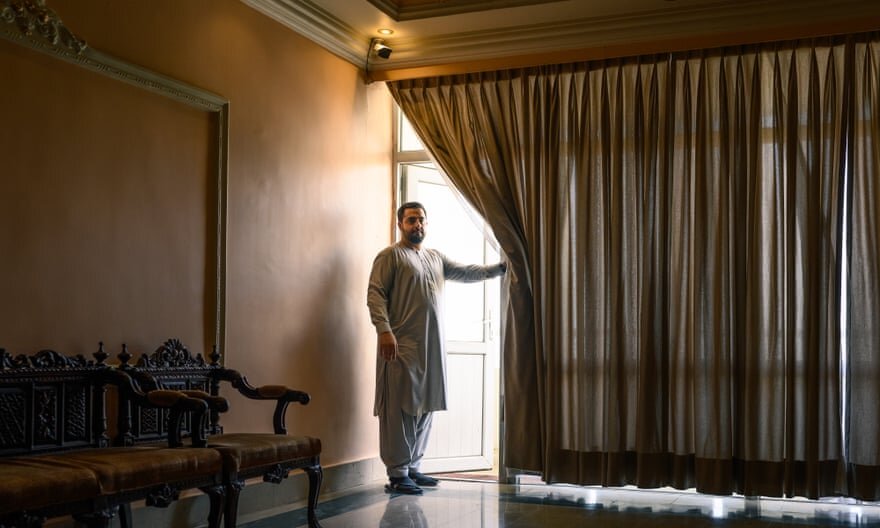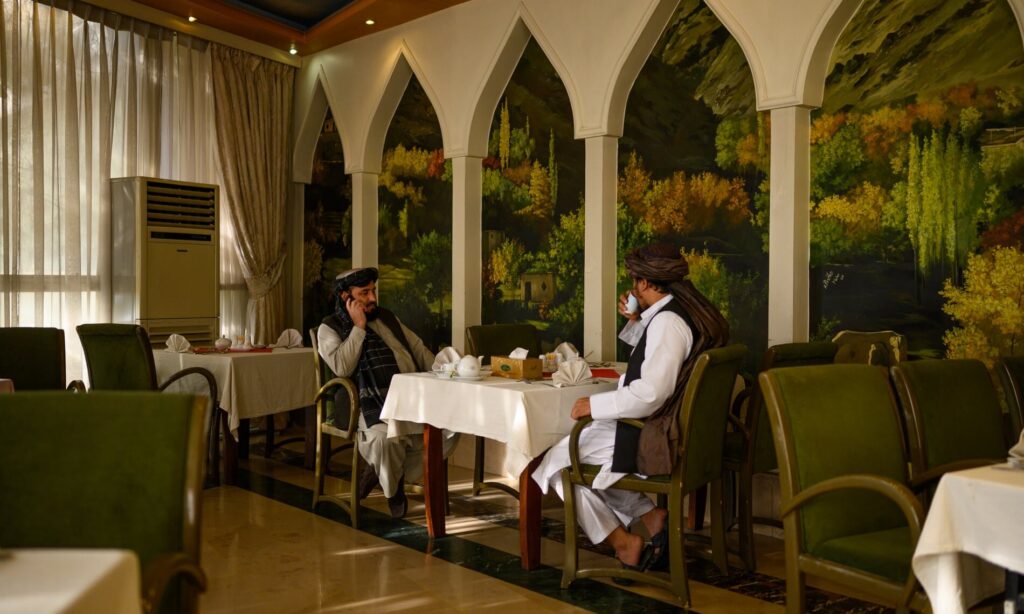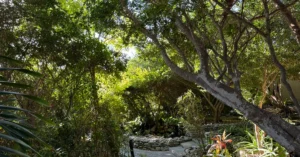In the heart of Kabul stands a historical landmark, the Intercontinental Hotel. Previously known for its luxurious parties and international guests, it is now a reflection of Afghanistan’s present, under the control of the Taliban. As the world watches, the hotel has become a microcosm of the nation’s shifting dynamics, where the past and present collide.
Barrier to Entry: Where the Past Fades
As you approach the Intercontinental, you’ll encounter multiple barriers. Smiling Taliban guards, some carrying Kalashnikovs, check your entry. “Weapons Handover Point” signs greet you at the second barrier. A glimpse into the country’s complexities, these guards act under specific orders. Once past these security measures, the grand driveway reveals itself, but not without a body search first. Behind a metal gate, the Intercontinental Hotel, perched high, watches over the war-torn city of Kabul.
A Tale of Transformation: From Parties to Politics

The Intercontinental Hotel has an illustrious history, opening its doors in 1969 as Afghanistan’s first luxury hotel. Over the decades, it bore witness to political upheavals, hosting rulers and rebels. In 2021, when the Taliban took over Kabul, the hotel, too, came under their control. What makes this episode unique is the unpublicized experiment happening within its walls: Taliban and non-Taliban working together in administrative roles, challenging the stereotypes.
A Shifting Landscape: From Past Glory to Uncertain Future

Walk through the Intercontinental, and you’ll notice the contrasts. The once vibrant lobby, adorned with four clocks showing global time zones, lies underutilized, unable to accept credit cards due to international banking restrictions. For Afghan families who can hardly afford a meal, the hotel’s £80 per night is often unreachable. Samiullah Faqiri, a young marketing manager, dreams of filling its empty rooms, even renting them out during evacuations, bridging the gap between the hotel’s financial goals and the economic realities outside.
A Dichotomy of Hope and Uncertainty
The Intercontinental Hotel embodies Afghanistan’s dual narrative, where Taliban officials, like Faqiri and the enigmatic Mohammed Elyas Niazai, navigate a challenging path towards rebuilding and reconciliation. While international politics and societal norms shift around them, they strive to ensure that the hotel, with its historic charm, can once again become a symbol of an Afghanistan reimagined.










